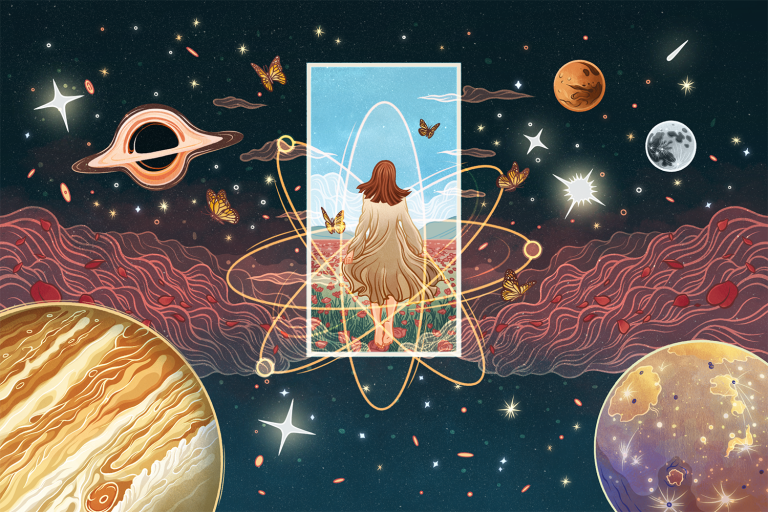A Clip from Star Trek on Being Human
Leonard Mlodinow is a physicist and writer had some real gems for Star Trek fans in our show, “Randomness and Choice.” “Confessions of a Star Trek Writer” is a lovely reflection on his experience writing for Star Trek: The Next Generation.
Here’s an excerpt of our conversation between Krista and Mr. Mlodinow, an exchange between two Trekkies in all its glory, followed by a clip from TNG of Commander Data asking what defines a life:
Ms. Tippett: You have written for Star Trek.
Dr. Mlodinow: “The Next Generation.”
Ms. Tippett: “The Next Generation,” which is the best of the series, right.
Dr. Mlodinow: That’s what I think.
Ms. Tippett: Okay. I never get to have this conversation…
Dr. Mlodinow: Coincidence, I think not.
Ms. Tippett: …with people. Everyone says, oh, they grew up loving Star Trek, fine, yeah, but the one that really mattered was Star Trek: The Next Generation. But, for you, I think to be a writer of — it’s like a Trekkie version of, you know, a 13th century rabbi encoding Talmudic wisdom for the generations, right? You’re one of the creators.
Dr. Mlodinow: Yeah, you mix the Talmud, a little Klingon, and you’ve got something that’s kind of interesting.
Ms. Tippett: Exactly.
Dr. Mlodinow: And hopefully you learn something along the way.
Ms. Tippett: Yeah. And I mean, you tell this funny story about, I don’t know, I can’t remember where you told this, maybe this — a lovely piece you wrote in Newsweek about that, which we’ll put on our website. You know, somehow coming into a conversation with an attorney quoting from Klingon history, and you listen and you’re tuning out, and then you somehow realize that it was something you had written. It was an episode you’d written.
Dr. Mlodinow: Yes. And I’m thinking, oh, okay, I vaguely remember that at first. Oh wait a minute. That was me. And that was part of the fun of Star Trek, because when you wrote stuff, people paid attention, which is always fun.
Ms. Tippett: Yeah, right.
Dr. Mlodinow: Wow, that’s one of those eternal questions, too. I don’t remember if I worked on that or not. Maybe I wrote that.
Ms. Tippett: Yeah.
Dr. Mlodinow: But the question is certainly one that I’ve thought about, and it’s a very deep question, because I think having a character like Data really underlines, underscores that, because you can argue with a biological organism what is life? Or what’s the difference between a human and a bacteria? Or a human and a grasshopper? But when you say a pile of silicon and does it become — what point does it become a sentient conscious being is a very — is a question, of course, we have no answer to. But I think that we shouldn’t dismiss the possibility of Data being alive because he’s not biological. And neuroscientists today are only beginning to understand consciousness. I have a friend, Christof Koch, who works on that, and we’ve had many debates. But he believes that all information processing systems are conscious to some extent. Even a thermostat.
Ms. Tippett: Really?
Dr. Mlodinow: Any system that takes information and integrates it, he would say is conscious, and it’s all a spectrum, from zero or epsilon, a very tiny amount, to, you know, a great amount that we have, or perhaps even a greater amount that you might find somewhere else in the universe. And, they’re trying to form mathematical scientific theories of it. But it’s really very hard. I don’t think we even have a good working definition of what consciousness is.
Ms. Tippett: Yeah.
Dr. Mlodinow: So it’s the very, very early stages. I believe that science will address that question eventually. But, we’re not ready to do it yet.


Share your reflection